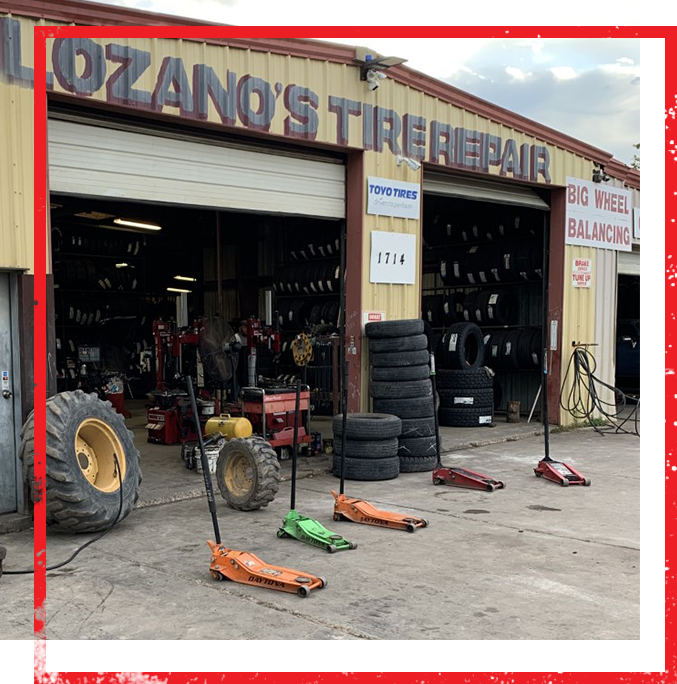The Environmental Benefits of Proper Tire Maintenance
Preserving correct tire care is typically ignored, yet its influence on the atmosphere is extensive. Proper tire upkeep not only prolongs the life-span of tires but also lowers landfill waste and adds to boosted air top quality.
Lowered Fuel Consumption
Improving tire upkeep techniques can lead to a significant reduction in gas intake for lorries. According to the United State Division of Energy, underinflated tires can lower gas mileage by 0.2% for every 1 psi drop in pressure in all 4 tires.
In addition to tire pressure, routine tire rotations and alignments likewise play a crucial role in fuel performance. Unevenly used tires can raise gas usage as the engine functions harder to keep rate and traction. By preserving proper placement and revolving tires at advised periods, motorists can make certain even extend the life and use of their tires, inevitably saving fuel and reducing their carbon footprint.
Extended Tire Life-span
Prolonging the life expectancy of tires is a crucial element of effective vehicle upkeep methods that can produce expense savings and ecological benefits over time. By properly keeping tires, motorists can considerably extend their usability, reducing the regularity at which new tires need to be manufactured and old ones gotten rid of. This not only saves useful resources yet likewise decreases the power and discharges associated with tire manufacturing and disposal processes.
Routinely examining tire stress, rotating tires, and making sure proper placement are crucial action in expanding tire lifespan. Ample tread deepness is important for optimum grip and security, however it additionally contributes in the length of time tires can be utilized before needing replacement. Furthermore, avoiding hostile driving actions that speed up tire wear, such as extreme braking and doglegs, can even more boost tire toughness.
Eventually, increasing the durability of tires via aggressive maintenance not just benefits the atmosphere by minimizing waste and conserving sources but likewise brings about cost financial savings for car owners by postponing the demand for new tire purchases.
Reduced Exhausts Result
Efficient tire maintenance techniques add to a reduction in emissions output, straightening with ecological sustainability objectives in the automotive sector. Properly inflated tires, consistently revolved and straightened, can improve gas efficiency, thus lowering the total carbon dioxide emissions from cars. When tires are underinflated, the engine should work harder to push the car, causing enhanced gas intake and greater discharges. By maintaining optimum tire pressure degrees, vehicle drivers can aid alleviate these unfavorable environmental impacts.
In addition, properly maintained tires likewise improve grip and lower rolling resistance, additionally enhancing gas effectiveness. This, in turn, reduces the quantity of exhaust gases released right into the atmosphere. In addition, making certain tires are appropriately inflated and lined up can expand the life-span of the tires, reducing the regularity of tire replacements and the connected environmental expenses of tire production and disposal.

Lowered Garbage Dump Waste
Provided the positive influence of proper tire maintenance try this out on reducing emissions output, another considerable environmental benefit is the potential for lowered landfill waste. By ensuring that tires are properly blown up, straightened, well balanced, and rotated routinely, their lifespan can be dramatically expanded.

Improved Air Top Quality
Enhancing air quality via appropriate tire upkeep practices is a vital aspect of sustainable environmental stewardship. When tires are underinflated, they create a lot more moving resistance, causing increased fuel usage and greater exhausts of hazardous toxins such as carbon monoxide gas and nitrogen oxides. Correctly filled with air tires not only enhance gas performance yet likewise minimize the quantity of toxins released right into the air.
Furthermore, well-kept tires with correct step depth and alignment add to more secure motoring problems, decreasing the likelihood of mishaps that can cause the launch of added pollutants right into the atmosphere. By extending the life expectancy of tires with routine upkeep and rotation, fewer tires are discarded prematurely, decreasing the environmental influence of tire disposal and manufacturing processes.
Conclusion
To conclude, appropriate tire upkeep supplies countless ecological advantages. By reducing fuel consumption, extending tire lifespan, lowering exhausts output, lowering land fill waste, and boosting air high quality, individuals can contribute to a healthier earth. These initiatives not just benefit the setting however likewise help to conserve sources and reduce total ecological effect. It is crucial for people to prioritize tire maintenance as a simple yet effective means to safeguard the environment for Get More Information future generations.
Proper tire upkeep not just extends the life expectancy of tires yet additionally lowers garbage dump waste and contributes to improved air quality - discount tires morris il. By preserving proper placement and turning tires at suggested periods, drivers can ensure also wear and extend the life of their tires, eventually saving fuel and minimizing their carbon footprint
By effectively keeping tires, vehicle drivers can substantially lengthen their usability, decreasing the frequency at which new tires need to be manufactured and old ones disposed of.Regularly inspecting tire stress, rotating tires, and ensuring proper alignment are crucial steps in prolonging tire life expectancy. Furthermore, making sure tires are properly inflated and straightened can expand the lifespan of the tires, minimizing the regularity of tire replacements and the linked environmental prices of tire production and disposal.